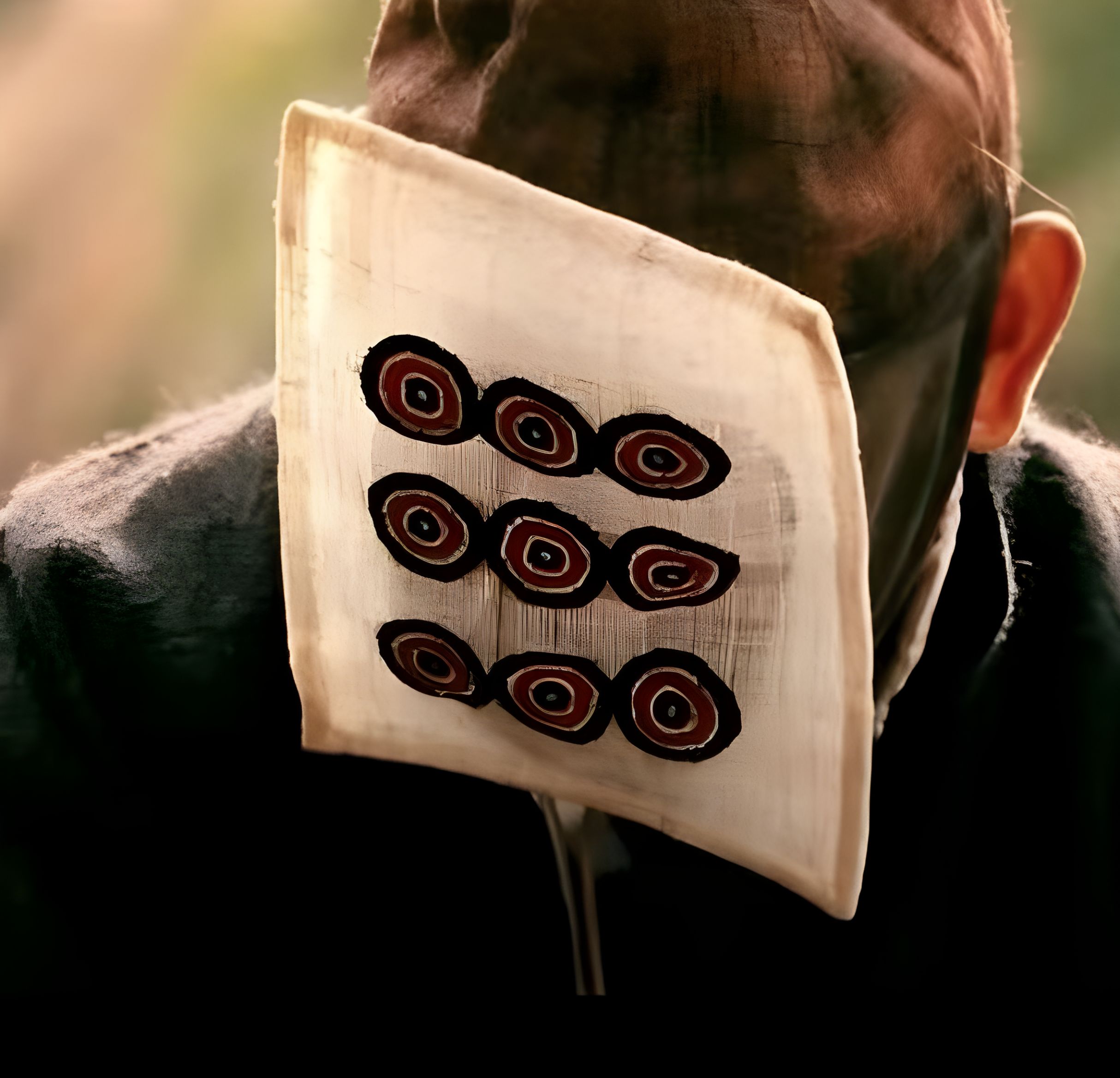中国首位MBA学位方丈释永信:信仰商业化的背后是宗教的行政工具化
Published:
1. We Manufacture Gods
我们制造神明
We manufacture gods—not because they are sacred, but because we are hollow.
我们制造神明,不是因为他们神圣,而是因为我们空虚。
In 2024, a renowned entrepreneur Zong Qinghou died. In 2025, a famous monk fell from grace. Two events that, on the surface, have nothing in common—yet both point to a singular truth: in an age stripped of belief, the most valuable commodity is anything that can be believed in.
2024年,一位著名企业家宗庆后死了;2025年,一位和尚”跌倒”了。看似风马牛不相及的两件事,却指向同一个真相:一个没有信仰的时代,最需要的,是可以被包装成信仰的东西。
Shi Yongxin—draped in robes, armed with an iPhone, wielding an MBA—transformed the 1,500-year-old Shaolin Temple into a sprawling global IP: tourism, film, real estate, overseas franchises. He was abbot and executive, preacher and pitchman. A manager of religion, and a tamer of capital.
释永信,这位身穿袈裟、手持iPhone、持有MBA的”CEO和尚”,在短短数十年间,把千年古刹少林寺,打造成了一个横跨旅游、影视、地产、海外扩张的超级IP。他既是主持,又是董事长;既做弘法,也搞招商。他是宗教的管理者,更是资本的驯兽师。
2. The Death of God, Chinese Style
中国式的”上帝之死”
As Nietzsche proclaimed, “God is dead.” But in China, God did not die a slow death of modernity. He was executed. The Cultural Revolution’s crusade against the “Four Olds,” the bulldozing of temples, the burning of sutras, and the forced secularization of monks—it was not an evolution. It was an eradication.
正如尼采所言:”上帝死了。”可在国内,这个”神”的死亡,并不是自由主义或现代性带来的自然死亡,而是一场人为暴力:“破四旧”的大扫荡,无神论的机器,庙宇的拆除、经典的焚毁、僧侣的改造。我们不是与神渐行渐远,而是用铁锤砸碎神像。
As Durkheim argued, religion is not about gods, but about a society imagining itself. And when traditional religion is smashed, rationality does not rise in its place—hunger does. Hunger for meaning. For ritual. For purity. So we sacralize the market, sanctify CEOs, and turn Shaolin into a spiritual Disneyland ready for export.
涂尔干说,宗教并非关于神灵,而是关于社会如何想象自己。当传统宗教被扫荡后,我们并没有因此变得更理性,而是更饥渴。我们渴望意义、仪式、神圣边界——于是便会赋予市场以信仰,将CEO奉为图腾,把企业家当作圣徒,把少林寺变成可以出口的”精神迪士尼”。
3. The Perfect System Product
完美的制度产物
In front of cameras, he was a “cultural envoy,” a “soft power icon.” Behind the headlines, he stands accused of embezzlement, secret children, and betrayal of vows. As he posed with iPhones beside Popes and CEOs, Buddhist doctrine quietly slid into spreadsheets—monetized via real estate, Kung Fu shows, and cartoon licensing.
在媒体的镜头里,他是”文化外交官”、是”中华软实力的化身”;在现实的调查中,他却是涉嫌侵吞公款、私生多子的被调查者。当他拿着iPhone与教皇、库克、女王合影时,他的佛法也被整合进房地产、功夫表演、游戏授权的资产负债表里。
He did not betray Buddhism. He embodied the state-defined version of it. As a member of National People’s Congress and vice-chair of the official Buddhist Association, his role was never monastic retreat—but bureaucratic performance. He wasn’t an anomaly. He was a system product.
他不是背叛佛教,而是兑现了佛教在当代中国的”国家定义”。 作为人大代表、全国佛教协会副会长,他代表的从来不是僧团的清修,而是宗教的行政化、工具化。他不是一个异类,而是一个”制度套利的产物”。
4. The Commodification of Cultural Anxiety
文化焦虑的商品化
Just as Zong Qinghou’s cloth shoes became a symbol of thrift, Shi Yongxin’s robes became props of commercial legitimacy. One sold beverages in the name of patriotism. The other sold real estate in the name of Dharma. Religion and enterprise—now merely different nodes on the same distribution chain.
正如宗庆后的布鞋成为”节俭”的图腾,释永信的袈裟也不过是”合法化商业”的道具。一人以爱国卖饮料,一人以弘法卖地权。宗教与企业,如今不过是同一条供应链上的不同分销点。
We do not lack belief. But our objects of belief have mutated. The rise of the Shaolin brand is not a religious revival—it’s the commodification of cultural anxiety. Shi’s entrepreneurial talent deserves acknowledgment, but what he satisfied was not the hunger of the soul, but a civilization’s craving for instant “cultural confidence” in an age of accelerated modernity.
我们不是没有信仰,而是信仰的对象正在变异。少林IP的崛起,本质上不是宗教复兴,而是文化焦虑的商品化出口。 释永信的商业手段值得肯定,但他所满足的,并非灵魂的渴望,而是一个民族在现代性焦虑中对”文化自信”的速成幻觉。
5. The Logic of Transvaluation
价值反转的逻辑
This is Nietzsche’s “transvaluation of values” in motion: in an era where gods are dead and belief has crumbled, we begin to worship those who can manufacture illusions—CEOs, monks, influencers. They don’t need holiness, just branding. No salvation, just storytelling. No truth, just narrative.
这正是尼采所说的”价值的反转”:在一个神已死、信仰溃散的时代,人们开始膜拜那些能提供幻觉的职业——企业家、和尚、主播。他们不需要圣洁,只需包装;不需拯救,只需流量;不需真理,只需叙事。
Shi once said, “If China can import Disney, why can’t it export Shaolin?” The logic here is not spiritual but financial. In this model, “preaching” becomes “promotion,” and “faith” becomes “cash flow.”
释永信曾说:”如果中国可以引进迪士尼,为什么不能输出少林?”这句话背后的逻辑是资本逻辑,而非信仰逻辑。 在这个逻辑中,”弘法”不再是布道,而是推广;”信仰”不是修行,而是变现。
6. The Docile Soul Merchant
温顺的灵魂代理人
In a system where state and religion are not separated, a commercial monk is an ideal agent: legitimate, non-threatening, exportable, controllable. He becomes a docile soul merchant—centrally approved for the task of “spiritual poverty alleviation.”
而在国家与宗教未分的体制里,商业和尚也正好填补了意识形态的空白:他既合法,又不危险;既可输出,又可控。他是一种温顺的灵魂代理人,为新时代的”精神扶贫”提供了官方认证。
7. The Eternal Cycle
永恒的循环
Shi’s collapse is not the end of belief—but the start of the next cycle. Just as Zong Qinghou’s daughter inherited not just a company but a myth, we too will soon witness a “Monk 2.0”—branded, edited, and ready for export.
释永信的神话坍塌,并非信仰的终结,而是另一个周期的开始。正如我们刚送走宗庆后,又迅速迎来了”接班女儿”的仪式剧本,我们也会在释永信之后,迎来另一个可以被包装、消费、膜拜的”和尚2.0”。
We manufacture gods, then break them—not because we are stupid, but because we are starving. Lonely. Desperate to find sacredness in the fragments.
我们一次次制造神明,又一次次摧毁;不是因为我们愚蠢,而是因为我们太饥渴,太孤独,太需要在碎裂中找到些许神圣感。
But unless we interrogate this very impulse—to sanctify, consume, discard—we will forever remain not believers, but customers in the faith factory.
但如果我们不反思自己造神的冲动,我们将永远只是信仰工厂的消费者——不再有信徒,只有用户。
